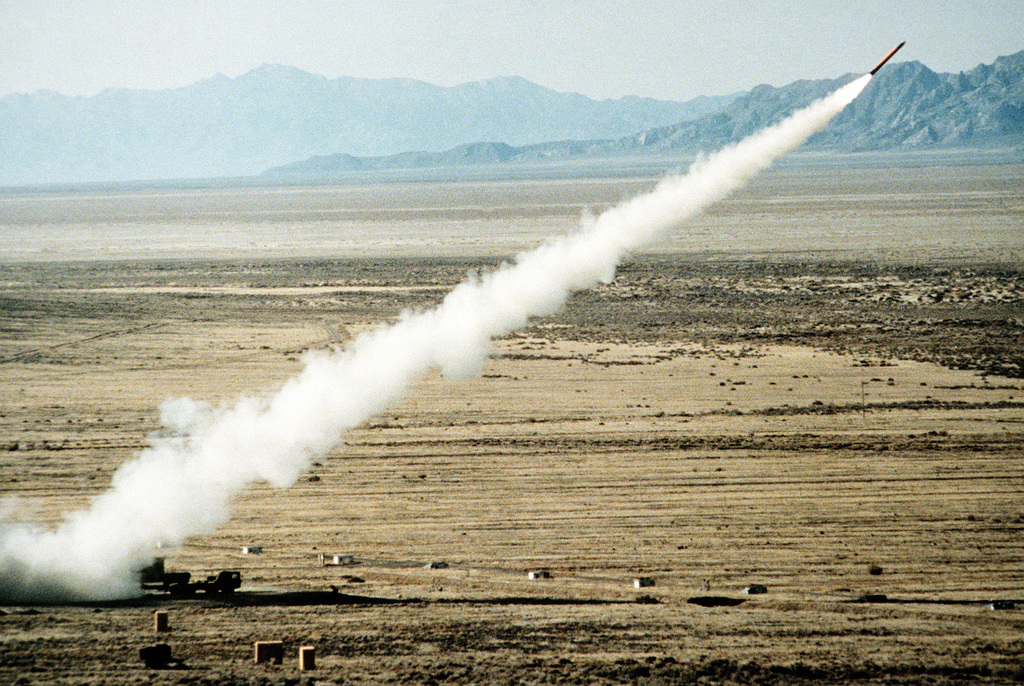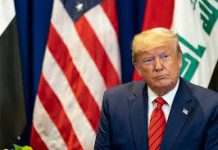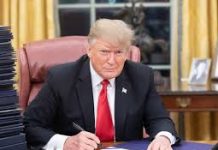
President Donald Trump is intensifying his efforts to resolve the conflict in Ukraine, announcing plans for a second meeting with Russian President Vladimir Putin, just a day before he is set to meet Ukrainian President Volodymyr Zelenskyy at the White House.
Trump made the announcement shortly after a phone call with Putin on Thursday. While a specific date has yet to be determined, Trump indicated the meeting would take place in Budapest, Hungary.
“I believe significant progress was made during today’s conversation,” Trump wrote on social media. The leaders previously met in Alaska in August, a meeting that did not yield a breakthrough, leaving Trump frustrated as he had hoped his longstanding relationship with Putin could help address the nearly four-year-long conflict.
According to Yuri Ushakov, Putin’s foreign policy adviser, the Russian president initiated the call, describing it as “very frank and trusting.” Ushakov added that Putin cautioned Trump that selling long-range Tomahawk missiles to Ukraine—an option the U.S. president has publicly discussed—would “cause serious harm to relations between our countries.”
Trump’s meeting with Zelenskyy on Friday was already scheduled. Zelenskyy has been advocating for weapons that would enable Ukrainian forces to target deeper within Russian territory, arguing that such measures could pressure Putin into taking Trump’s proposals for direct negotiations more seriously.
Trump Moves to Fulfill Campaign Promises
Trump’s renewed focus on Ukraine follows his efforts to broker a ceasefire between Israel and Hamas in Gaza, a diplomatic achievement he highlighted during a recent visit to Israel and Egypt. Ending conflicts in Ukraine and Gaza was a central theme of Trump’s campaign, during which he frequently criticized President Joe Biden’s handling of international crises.
Despite some progress in Gaza, Trump has struggled to convince Putin to engage directly with Zelenskyy. Speaking in Jerusalem earlier this week, Trump suggested that the Gaza truce could pave the way for broader normalization between Israel and other Middle Eastern nations. He emphasized that resolving the war in Ukraine remains his top foreign policy priority, describing it as the largest armed conflict in Europe since World War II.
“First, we have to get Russia done,” Trump told his special envoy Steve Witkoff, who also acts as the administration’s key liaison with Putin. “We need to focus on Russia first.”
Consideration of Tomahawk Missiles for Ukraine
Trump’s meeting with Zelenskyy will mark their fourth in-person encounter this year. Their initial Oval Office discussion was tense, but subsequent meetings have fostered a more cooperative relationship. Trump has mentioned the possibility of providing long-range Tomahawk missiles to Ukraine, a move Putin has warned could further strain U.S.-Russia relations.
Although the sale of Tomahawks would be high-profile, it would take considerable time to supply the weapons and train Ukrainian forces to use them effectively, according to Mark Montgomery of the Foundation for Defense of Democracies. He noted that in the short term, Ukraine could benefit more from an increased supply of Extended Range Attack Munition (ERAM) and Army Tactical Missile System (ATACMS) missiles, with up to 3,350 ERAMs already approved for sale earlier this year.
Tomahawks, with a range of roughly 995 miles (1,600 km), would allow Ukraine to strike much deeper into Russia than the ERAM (285 miles / 460 km) or ATACMS (186 miles / 300 km). Montgomery emphasized that providing Tomahawks is as much a political decision as a military one. While ERAMs have shorter reach, they could still effectively disrupt Russian logistics, command, and troop deployment near the front lines.
Potential New Sanctions on Russia
Meanwhile, legislation awaiting Trump’s approval in the Senate would impose heavy tariffs on countries buying Russian oil, gas, uranium, and other exports to weaken Moscow economically. While Trump has not officially endorsed the bill—and Republican leaders are hesitant to move forward without his support—the White House has shown growing interest in the legislation in recent weeks.
Officials have reviewed the proposal closely, suggesting edits and technical adjustments, signaling to Capitol Hill that Trump may be taking the bill more seriously. Sponsored by Senators Lindsey Graham (R-S.C.) and Richard Blumenthal (D-Conn.), the bill is being coordinated with the administration to ensure it aligns with the president’s foreign policy goals. A White House official, speaking anonymously, emphasized that any sanctions package should give the president “complete flexibility.”




